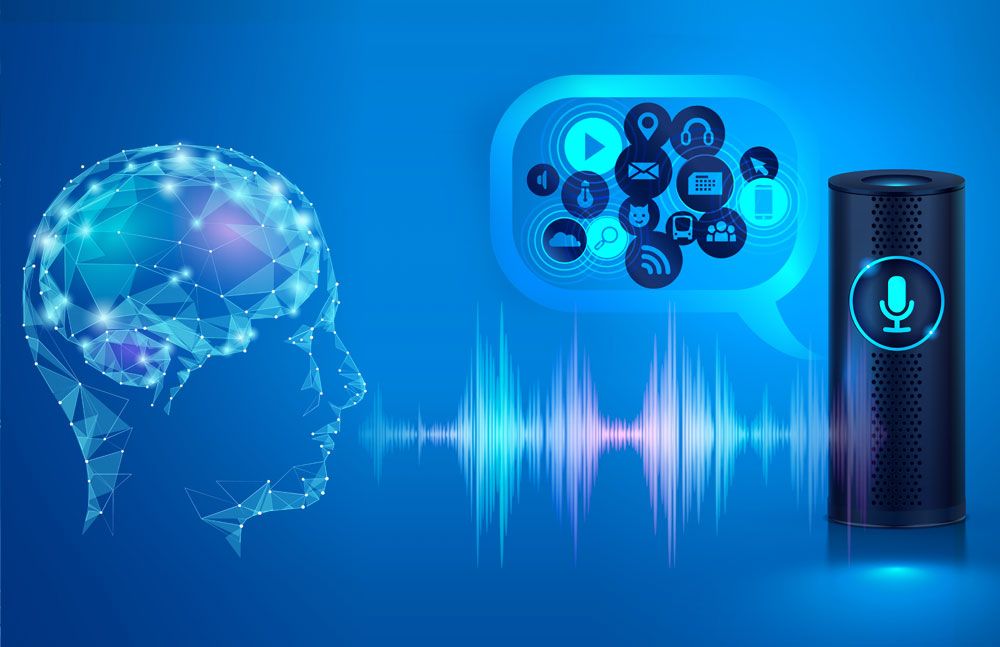Breaking Down 2023's Speech Technology Advancements and AI Integration

Decoding the Advancements in Speech Technology for 2023
As the pages of the calendar turn to 2023, the field of speech technology stands on the brink of a renaissance, fueled by groundbreaking advancements in artificial intelligence (AI) and deep learning. These technologies have catalyzed the development of text-to-speech (TTS) engines that offer an unprecedented level of naturalness and intonation, capturing the subtle inflections of human speech that were once the exclusive province of human narrators. For professionals in academia and industry—from research scientists honing linguistic models to software engineers crafting the next generation of interactive applications—the latest strides in TTS technology promise a future where digital voices are indistinguishable from their living, breathing counterparts.
Driven by the best text-to-speech tech software and AI applications, these modern speech engines empower a range of devices and services, offering not only enhanced user experiences but also new possibilities for individuals with disabilities. As TTS technology becomes more accessible with offerings like free text-to-speech tech online, its implications for education, customization, and global communication are profound. In classrooms, speech technologies transcend barriers, allowing students of all abilities to engage with their curriculum on equal footing. Meanwhile, developers leverage these tools to create more inclusive and dynamic digital environments, anticipating a future where every interaction is augmented by the ease and efficiency of natural, AI-driven speech.
| Topics | Discussions |
|---|---|
| Emerging AI Technologies in Speech Synthesis | Overview of the latest AI innovations that are enhancing the quality and functionality of TTS software, striving to achieve unparalleled naturalness in voice synthesis. |
| The 2023 State of Speech Engines | An in-depth analysis of the current advancements shaping the landscape of speech engines, with a focus on developments in natural language processing and machine translation. |
| Role of Deep Learning in Text-to-Speech Evolution | Exploring the role deep learning algorithms play in advancing TTS technologies, leading to more accurate and humanlike synthesized speech. |
| Programming With AI-Driven Speech Technologies | Practical tutorials and code examples for developers looking to harness AI-driven speech technologies in their software projects with Python and Java. |
| Future Applications of Text-to-Speech Technologies | Predictions and insights into future applications of TTS that could further transform various sectors by making synthetic speech more accessible and versatile. |
| Common Questions Re: TTS and AI | Answers to frequently asked questions about the current state of TTS software, free AI services for TTS, and the impact of Google's TTS services. |
Emerging AI Technologies in Speech Synthesis
The landscape of speech synthesis is transforming, with emerging AI technologies at the helm of this change. As we navigate these waters, it becomes essential to understand the terminology that anchors our discourse on these advancements. This glossary is designed to demystify the technical jargon and equip the enthusiasts and professionals alike with a clearer perception of the latest trends that are shaping the future of speech technology, particularly in the context of text-to-speech (TTS) systems.
| Term | Definition |
|---|---|
| Artificial Intelligence (AI) | An area of computer science focused on creating systems capable of performing tasks that usually require human intelligence, such as speech recognition and synthesis. |
| Deep Learning | A subset of machine learning involving neural networks with many layers, used extensively to advance the realism and naturalness of TTS engines. |
| Text-to-Speech (TTS) | The process of converting written text into spoken words via computational methods, often employing AI to achieve natural-sounding results. |
| Speech Synthesis | The artificial production of human speech by a machine or computer program; a key aspect of TTS technology. |
| Machine Translation | The use of software to translate text or speech from one language to another, with recent breakthroughs enhancing cross-language communication. |

The 2023 State of Speech Engines
On February 8, 2023, Erik J. Martin penned an insightful article titled "The 2023 State of Speech Engines," highlighting the remarkable evolution of speech technology shaped by advancements in AI. The focal point of this transformation is the emergence of speech engines that can now produce voices so natural and humanlike they blur the line between synthetic and real. This leap forward is largely attributed to deep learning algorithms, which parse vast amounts of data and perfect the nuances of speech, resulting in synthesized voices that offer rich, expressive, and intuitive communication.
Amey Dharwadker, a Machine Learning Tech Lead at Meta, contributes his expertise to the discussion, noting that current speech technologies have achieved exceptionally high levels of accuracy. The strides in this domain have enhanced not just the core functionality of TTS engines, but have also significantly improved the user experience. The interaction between humans and voice-enabled devices is more organic than ever, paving the way for a future where digital communication seamlessly integrates into human conversational flow.
Additionally, the dramatic improvements in machine translation are dismantling language barriers, promoting a more interconnected global community. These technological advancements, rooted in AI and its cognate fields, herald a future bustling with potential—where innovative applications of speech technology become enablers of widespread collaboration and understanding. As outlined in Martin's article, this trajectory stands testament to AI's deepening influence on speech technologies and their application across diverse sectors.
Role of Deep Learning in Text-to-Speech Evolution
Deep learning, a form of advanced machine learning, is significantly shaping the evolution of text-to-speech (TTS) technology. Its capacity to manage and interpret complex data sets enables the creation of TTS systems that deliver highly realistic and natural speech patterns. The technology itself relies on neural network architectures, which are composed of multiple layers of algorithms mimicking the neural structure of the human brain, to process linguistic information in a nuanced manner.
These neural networks are trained on extensive datasets that include myriad phonetic sounds, intonations, and patterns inherent to human languages. This training allows the TTS engines to generate speech with varied inflections, pitches, and rhythms that were once a challenging feat for more rudimentary forms of speech synthesis. As a result, interactions with voice-enabled digital assistants, navigation systems, and other TTS applications are becoming increasingly indistinguishable from interactions with human speakers.
Furthermore, deep learning algorithms enable TTS systems to adapt to the user's unique speech patterns, accent, and language preferences, allowing for a more personalized and inclusive experience. The adaptability of these systems points towards an era where the accessibility of technology will continue to grow, with TTS serving as a vital tool in bridging communication gaps and enhancing digital inclusivity.
Programming With AI-Driven Speech Technologies
Quickstart Guide for Python TTS Development
First, ensure you have the library installed:
pip install gTTSThen, you can quickly generate speech as follows:
from gtts import gTTS
tts = gTTS('Hello, this is a Python TTS test.', lang='en')
tts.save('hello.mp3')
Integrating TTS Features in Java Applications
import com.sun.speech.freetts.Voice;
import com.sun.speech.freetts.VoiceManager;
Future Applications of Text-to-Speech Technologies
Unreal Speech's text-to-speech synthesis API is redefining the economics of speech technology by offering cost reductions of up to 90% compared to market competitors. This pricing paradigm shift enables academic researchers and developers to allocate their strained budgets more effectively, dedicating resources to extended experimentation, innovation, and the integration of TTS into a broader range of projects. The ability to dramatically lower the costs of speech technology without compromising quality is critical in maintaining a competitive edge in research and development.
For software engineers who often work with TTS in application development, Unreal Speech provides both an affordable and high-capacity solution suitable for processing extensive text data. The API’s low latency and high uptime are vital for engineers who develop real-time applications that necessitate swift and dependable speech output. Furthermore, game developers can employ Unreal Speech's cost-effective solution to craft immersive auditory narratives, enhancing player engagement without the financial burden usually associated with TTS technologies.
Educators can take advantage of Unreal Speech's substantial character allowance under their enterprise plan to create extensive instructional materials, particularly catering to the needs of students with disabilities. The promised advancements in multilingual support and per-word timestamps align Unreal Speech with the educational sector's need for more targeted and interactive teaching tools. These planned enhancements emphasize the adaptive potential of Unreal Speech, suggesting that it will not only respond to the current needs of its diverse user base but will continue to evolve with the advancing landscape of TTS technology.
Common Questions Re: TTS and AI
Exploring Cutting-Edge TTS Software Solutions
Today's cutting-edge TTS software solutions leverage the power of deep learning within AI to produce speech that is remarkably lifelike and dynamic. Utilizing advanced neural networks, they're capable of understanding and synthesizing language in a way that closely mirrors human speech patterns, making digital interactions more engaging and natural.
Accessing Free TTS AI Services for Development
Developers looking for cost-effective ways to incorporate TTS in their projects can turn to various free TTS AI services. These platforms provide a formidable toolkit for developers to experiment with, often featuring a range of languages and customizable voice options, broadening the spectrum of accessibility in application design.
Understanding Google's Offerings in Free TTS
Google's foray into the world of TTS AI offers a suite of services highlighting their commitment to accessibility. While not all features are free of charge, Google provides tiers and trials that grant access to their sophisticated TTS APIs, supporting developers as they incorporate speech technologies within their innovations.